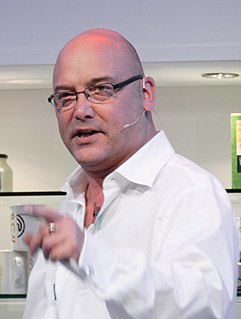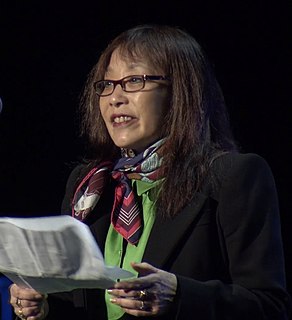A Quote by Homaro Cantu
Previous generations used to eat locally out of necessity. Without options like flash-freezing and worldwide export services, communities had to rely on local farms for all of their meals. In many ways, this was beneficial. People ate fresh, seasonal foods that were naturally flavorful and nutritious, and farmers and communities prospered.
Related Quotes
All communities, and low-income communities especially because of food insecurity and lack of access to healthy foods, need more farmers markets, need more community gardens and urban farms. It would be great if people living in communities had the tools and resources to grow food in their own backyard - community-based food systems.
Latino actors and actresses have had to struggle for decades, but when I came around with Real Women Have Curves, attitudes were starting to change. We screened the film all over the world - in Jewish communities, black communities, Greek communities, German communities - and people across the board said, "That's my family."
SNAP benefits help local economies because the benefits are spent at local grocery stores - with locally grown and locally-made products. I remember many years ago, while on food stamps, I advocated for the benefits to be spent at local farmers markets - a move that has helped local economies even more.
We all grew up in communities with grandmothers who cooked two, three vegetables that you had to eat. There was no ifs, ands or buts about it. But that's because many of our grandparents, they had community gardens; there was the vegetable man that came around. There were many other resources that allowed them to have access. So it's not that people don't know or don't want to do the right thing; they just have to have access to the foods that they know will make their families healthier.
When I think about the world I would like to leave to my daughter and the grandchildren I hope to have, it is a world that moves away from unequal, unstable, unsustainable interdependence to integrated communities - locally, nationally and globally - that share the characteristics of all successful communities.
In my writing, I want to address all communities, you know. I've spent many years talking about Chicano culture, Chicano history, and at the same time, I've also been in many communities and presented my work in many communities, in many classrooms, and that's where my vision is and my delight is and my heart is.
I'd say the most important criteria is vision. What is your vision for the party? Do you have a vision to strengthen the grassroots and help them turn out people in their local communities? That's the real thing. The real question is not about one person. It's not about an individual. It's about millions of people working all over this country to reach out in their local communities. And the DNC chair has to help them do that and have a vision for that and have the energy for that.





































